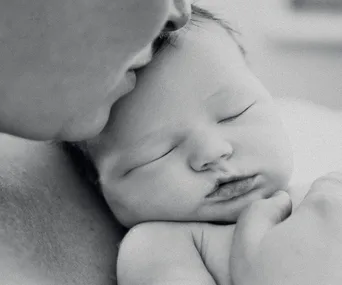FOR NEWBORNS
Cluster breastfeed
Breast-fed babies can often sleep better. “In the latter part of the day, breastmilk contains high levels of the hormone tryptophan,” says Andrea Grace, a children’s sleep specialist.
“Tryptophan aids the production of the sleep hormone melatonin. Mums who breastfeed should cluster feed in the run-up to bedtime, to fill baby up and encourage the production of sleep hormones.”
Hold him in a new way
Sleep consultant Tina Southwood recommends the ‘tiger in the tree’ hold, where you lay your baby on her tummy along your forearm (with your palm facing upward), so that her chin is resting in the crook of your arm.
“I do this on my left side, so my right hand is free to stroke her back,” she says. “Colicky babies really like this but all babies seem to find it soothing and many fall asleep quickly in this position.”
FROM 3 MONTHS
Try baby whispering
“Whisper ‘I want you to go to sleep now’ in baby’s ear when you are about to put him down,” says early childhood nurse Claire Read.
“Although they won’t understand it at first, it’s amazing what babies do understand and they will soon associate these words with bedtime.”
Download an app
So, your baby is waking up more often at 12 weeks than six? Don’t panic. “It may be due to teething, a cold, wanting to practise a new skill or a developmental burst,” says Dr Emma Svanberg, a clinical psychologist who specialises in mums and bubs.
“The Wonder Weeks app ($1.99) is great to prepare yourself for sleepless and fussy periods.” It’s a calendar that helps you track your baby’s mental development, including times of rapid growth, which can affect sleep, appetite, clinginess and crankiness.
FROM 6 MONTHS
Leave the room
It helps if your baby learns to fall asleep without having you in the room. “Babies wake up naturally every hour and a half or so.
If you are next to your baby as he falls asleep, he will expect you to still be there when he wakes up later,” says Andrea.


